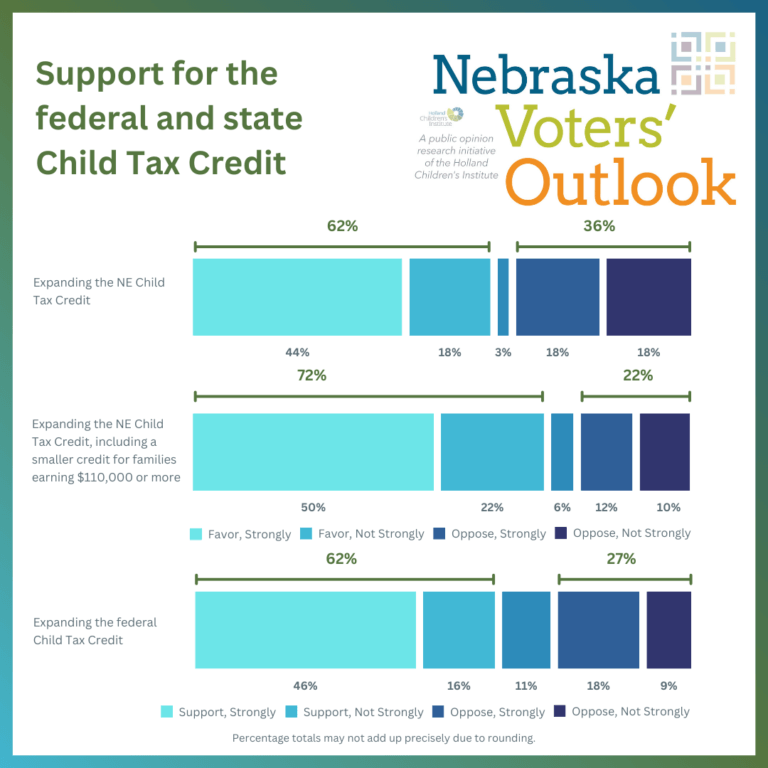Nebraska Voters’ Outlook is commissioned by and conducted in partnership with Patinkin Research Strategies, LLC, from January 31 through February 4, 2024, among approximately 600 registered voters across the state. Total results are available here. View the press release here.
Perceptions Indicate that the State is Off-Track and Not Doing Enough for Nebraskans
Since October 2022, the majority of Nebraskans have indicated they believe the State is on the “wrong track,” including more than half of Nebraskans (52%) in our latest public opinion poll, as noted in Figure 1 below.
Additionally, only 33% of Nebraskans believe the state government is doing “more than enough” or the “right amount” to help average-income individuals and families meet their needs to succeed, while the majority of Nebraskans (63%) believe the state government is “not doing enough.”
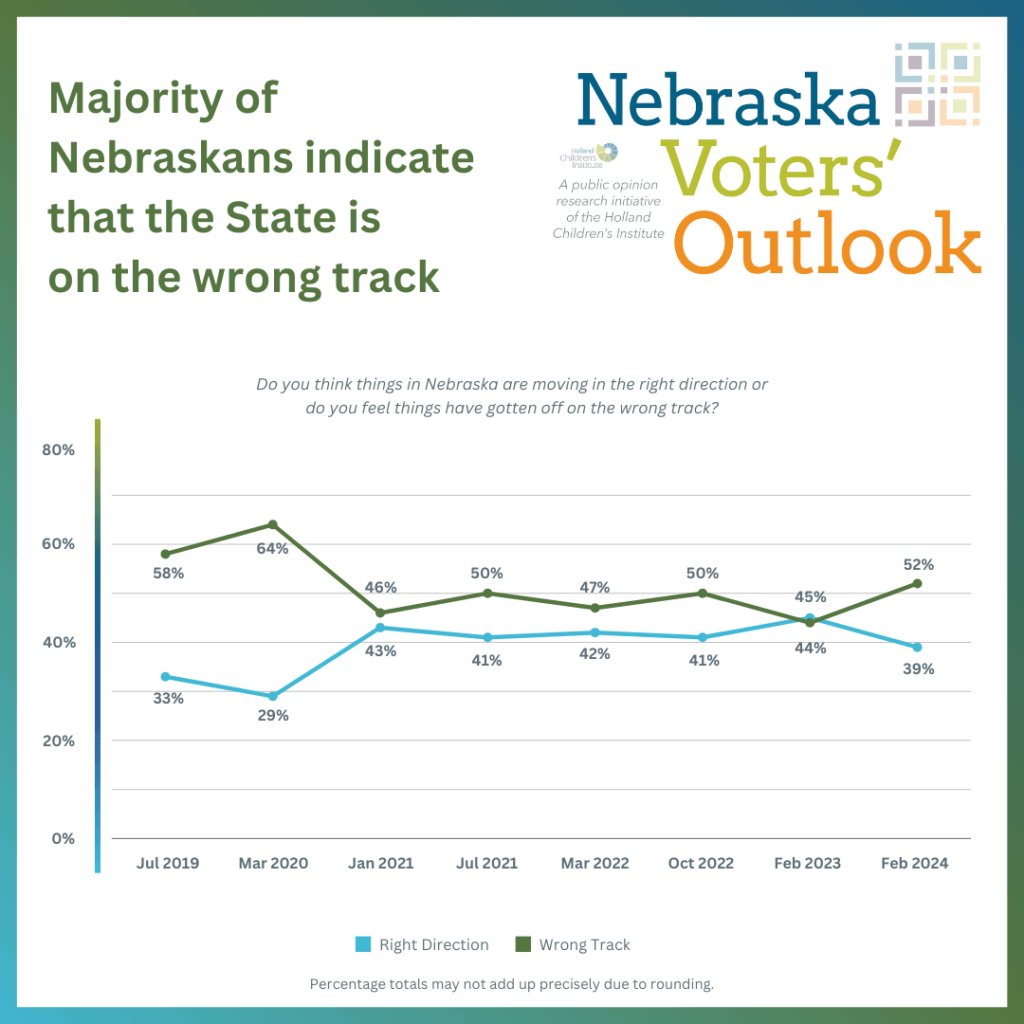
Public Opinion on Policy Issues related to Taxes, Healthcare, Food Assistance, and More
Policy leaders have introduced a number of legislation related to improving the lives of individuals, children, and families in Nebraska. When asked about the following legislation and the funding priorities, significant majorities favored policies and programs benefiting children and families, as noted in Figures 2, 3, and 4 below.
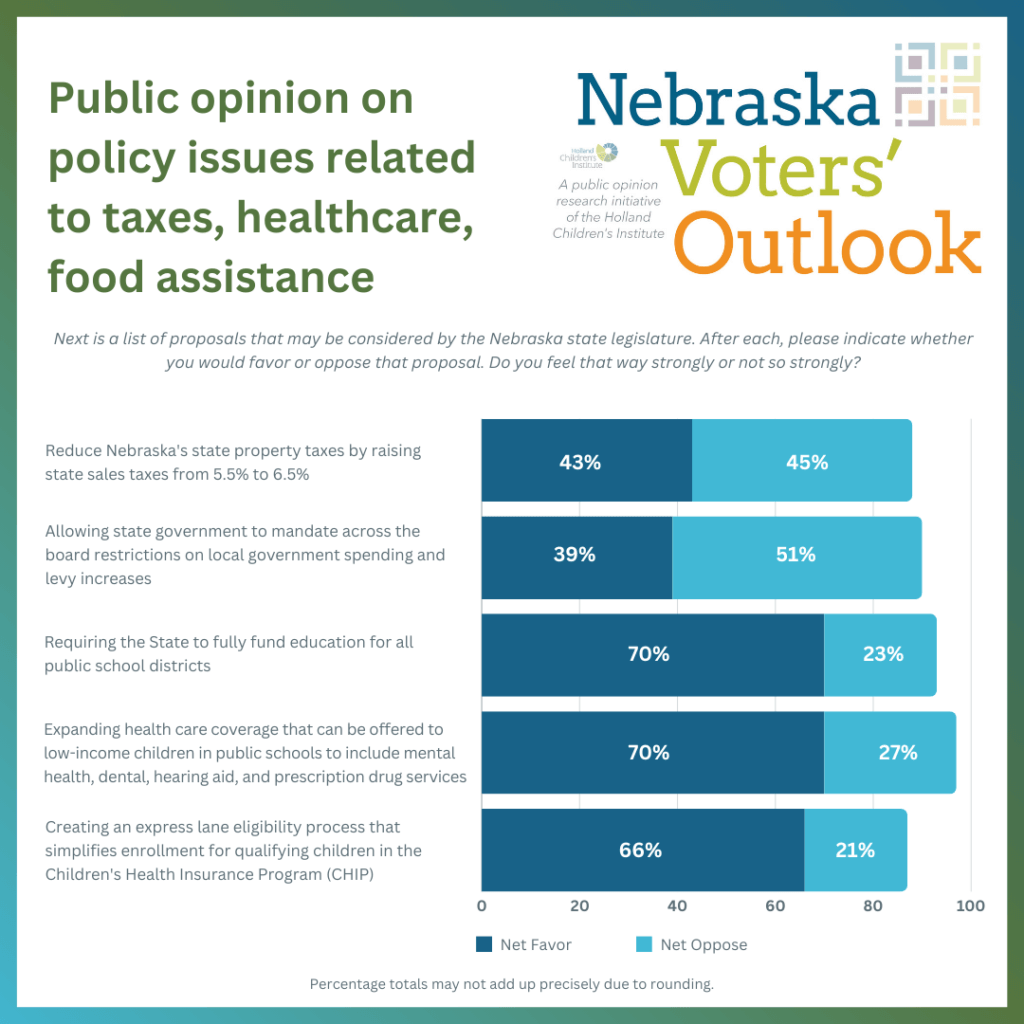
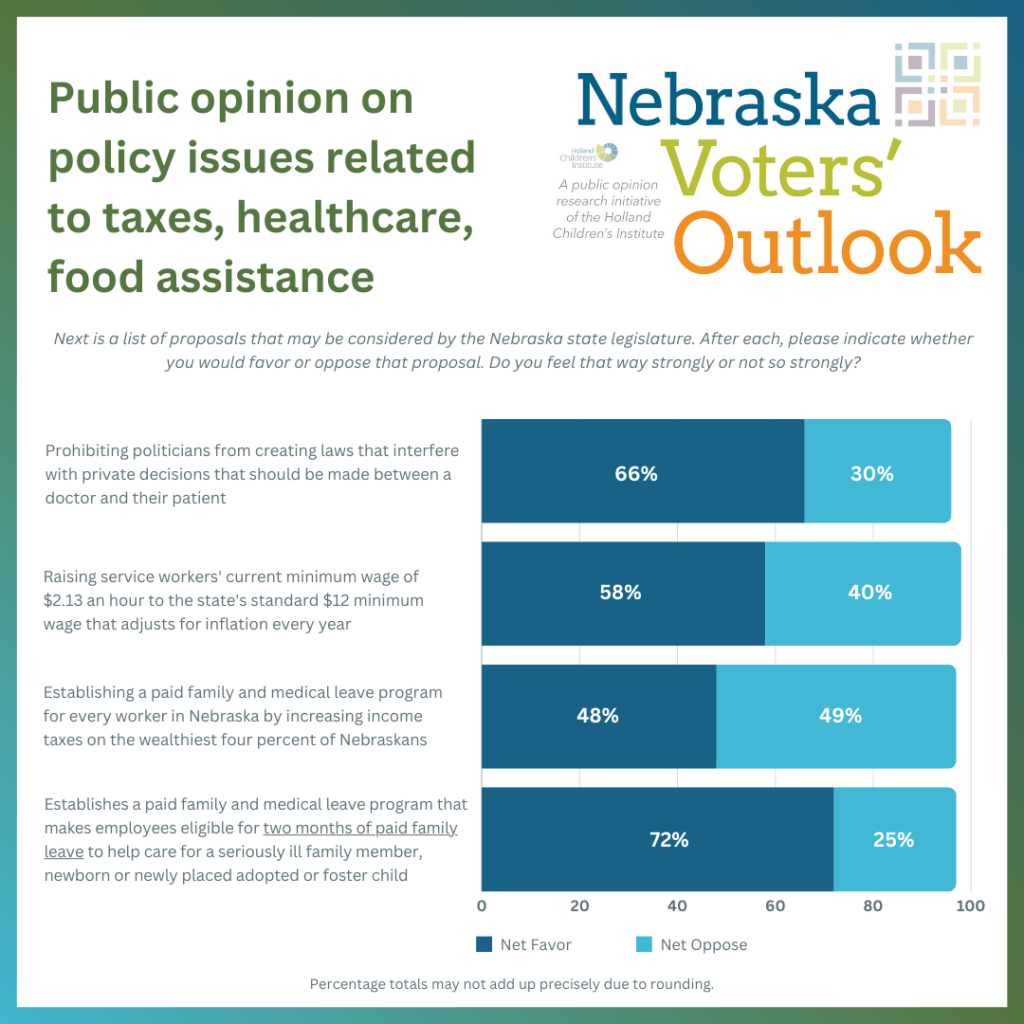
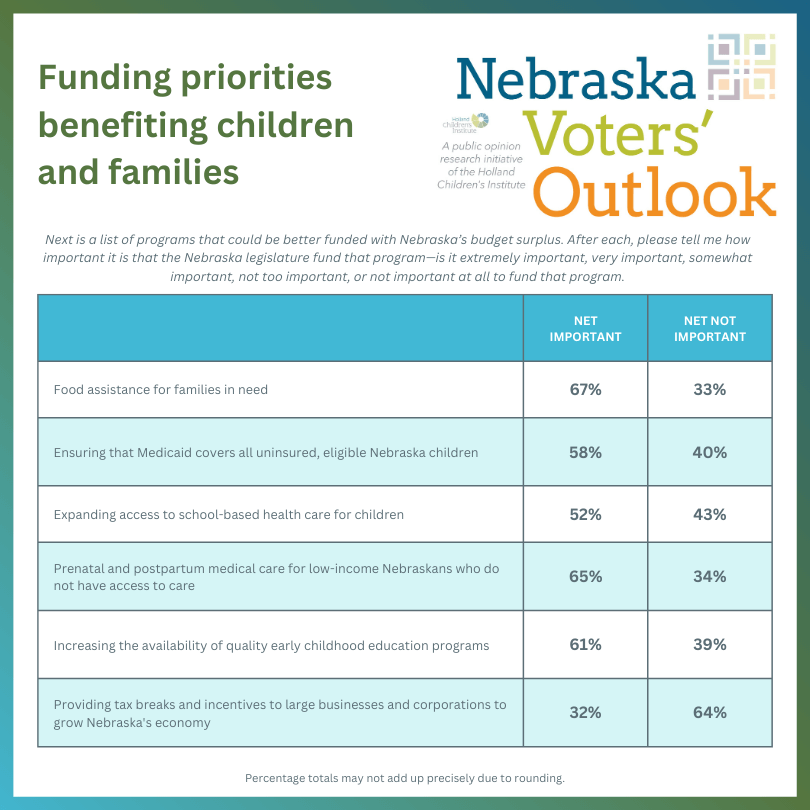
Strong Support for the federal and state Child Tax Credit
In relation to the child tax credit, a vast majority of Nebraskans (62%) favored creating a Nebraska Child Tax Credit, to refund poor, working, and middle-class families up to $1,000 for each child under the age of six, with the credit fully refundable for all families with low incomes. The net support was higher (72%) for the creation of the Child Tax Credit if it included a smaller credit for families earning over $110,000 or more.
If implemented at the federal level, Nebraskans said they would also support the bipartisan Child Tax Credit (62%), while about one-fourth of Nebraskans oppose it (27%), as noted in Figure 5.
